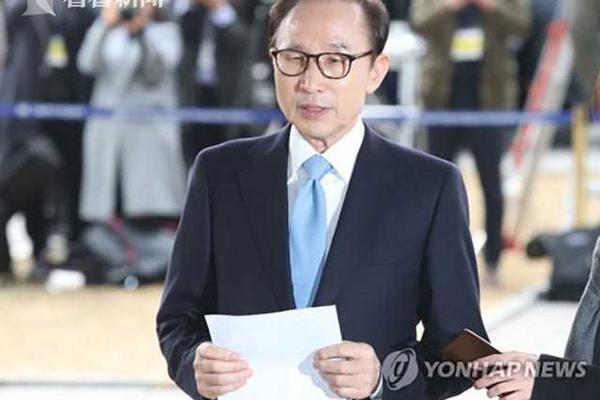
1. The five major functions of the operating system include: process and processor management, operation management, storage management, equipment management and file management.
2. A [Analysis] As the manager of the resources of the computer system, the main function of the operating system is to manage and schedule all the software and hardware resources of the system reasonably and improve the overall performance of the computer system.
3. Operating System (abbreviation: OS) is a group of interrelated system software programs that supervise and control computer operation, use and run hardware, software resources and provide public services to organize user interaction.
4. The main function of the operating system: process management. Resident programs and applications run on the basis of the process.When the computer adopts the von Neumann structure, each CPU can only run one process at a time.
5. The operating system has five functions: processor management: mainly controls and manages the work of the CPU. Storage management: mainly allocate and manage memory. Device management: mainly manage basic input and output devices. File management: responsible for the organization, storage, operation and protection of computer files.
6. The operating system has five functions: processor management: mainly controls and manages the work of the CPU. Storage management: mainly carry out memory allocation and management device management: mainly manage basic input and output device file management: responsible for the organization, storage, operation and protection of computer files, etc.

1. The storage management function of the operating system is to manage memory resources. It mainly realizes memory allocation and recovery, storage protection and memory expansion. The device management of the device management operating system is responsible for allocating and recycling external devices, and controlling external devices to operate according to the requirements of user programs.
2. The functions of the computer operating system include: processor management, memory management, device management, file management, job management and other functional modules. Processor management. The most basic function of processor management is to handle interrupt events. The processor can only detect interrupt events and generate interrupts and cannot process them.
3. The five major functions of the operating system are processor management, memory management, device management, file management and job management. Processor management The most basic function of processor management is to process interrupt events. After configuring the operating system, various events can be processed.
1. The main functions of the computer operating systemIt is process management. Its work is mainly process scheduling. In the case of a single user and a single task, the processor is only exclusive to one user's task. The work of process management is very simple.
2. The five major functions of the operating system are processor management, memory management, device management, file management and job management. Processor management The most basic function of processor management is to process interrupt events. After configuring the operating system, various events can be processed.
3. The role and basic functions of the operating system: the basic functions of the operating system include task management, interface management, human-computer interaction, graphical interface, voice control and virtual reality, etc.; file management; storage management, which is essentially the management of storage "space", mainly refers to the management of the main memory. Reason.
4. The basic functions of the operating system include process management, memory management, file system, network communication, security mechanism, user interface and driver. The operating system is the interface between the user and the computer, and also the interface between computer hardware and other software.
5. The five functions of the operating system are processor management, memory management, device management, file management and job management. Processor management The most basic function of processor management is to handle interrupt events. After configuring the operating system, various events can be processed.
6. The operating system has five functions: processor management: mainly controls and manages the work of the CPU. Storage management: mainly allocate and manage memory. Device management: mainly manage basic input and output devices. File management: responsible for the organization, storage, operation and protection of computer files.
Binance APK-APP, download it now, new users will receive a novice gift pack.
1. The five major functions of the operating system include: process and processor management, operation management, storage management, equipment management and file management.
2. A [Analysis] As the manager of the resources of the computer system, the main function of the operating system is to manage and schedule all the software and hardware resources of the system reasonably and improve the overall performance of the computer system.
3. Operating System (abbreviation: OS) is a group of interrelated system software programs that supervise and control computer operation, use and run hardware, software resources and provide public services to organize user interaction.
4. The main function of the operating system: process management. Resident programs and applications run on the basis of the process.When the computer adopts the von Neumann structure, each CPU can only run one process at a time.
5. The operating system has five functions: processor management: mainly controls and manages the work of the CPU. Storage management: mainly allocate and manage memory. Device management: mainly manage basic input and output devices. File management: responsible for the organization, storage, operation and protection of computer files.
6. The operating system has five functions: processor management: mainly controls and manages the work of the CPU. Storage management: mainly carry out memory allocation and management device management: mainly manage basic input and output device file management: responsible for the organization, storage, operation and protection of computer files, etc.

1. The storage management function of the operating system is to manage memory resources. It mainly realizes memory allocation and recovery, storage protection and memory expansion. The device management of the device management operating system is responsible for allocating and recycling external devices, and controlling external devices to operate according to the requirements of user programs.
2. The functions of the computer operating system include: processor management, memory management, device management, file management, job management and other functional modules. Processor management. The most basic function of processor management is to handle interrupt events. The processor can only detect interrupt events and generate interrupts and cannot process them.
3. The five major functions of the operating system are processor management, memory management, device management, file management and job management. Processor management The most basic function of processor management is to process interrupt events. After configuring the operating system, various events can be processed.
1. The main functions of the computer operating systemIt is process management. Its work is mainly process scheduling. In the case of a single user and a single task, the processor is only exclusive to one user's task. The work of process management is very simple.
2. The five major functions of the operating system are processor management, memory management, device management, file management and job management. Processor management The most basic function of processor management is to process interrupt events. After configuring the operating system, various events can be processed.
3. The role and basic functions of the operating system: the basic functions of the operating system include task management, interface management, human-computer interaction, graphical interface, voice control and virtual reality, etc.; file management; storage management, which is essentially the management of storage "space", mainly refers to the management of the main memory. Reason.
4. The basic functions of the operating system include process management, memory management, file system, network communication, security mechanism, user interface and driver. The operating system is the interface between the user and the computer, and also the interface between computer hardware and other software.
5. The five functions of the operating system are processor management, memory management, device management, file management and job management. Processor management The most basic function of processor management is to handle interrupt events. After configuring the operating system, various events can be processed.
6. The operating system has five functions: processor management: mainly controls and manages the work of the CPU. Storage management: mainly allocate and manage memory. Device management: mainly manage basic input and output devices. File management: responsible for the organization, storage, operation and protection of computer files.
Binance app download Play Store
author: 2025-01-23 02:08 Okx app download
Okx app download
324.25MB
Check OKX Wallet download
OKX Wallet download
452.44MB
Check Binance login App
Binance login App
544.49MB
Check Binance Download for PC Windows 10
Binance Download for PC Windows 10
137.56MB
Check Binance US
Binance US
948.42MB
Check Binance wikipedia
Binance wikipedia
255.88MB
Check OKX Wallet APK
OKX Wallet APK
889.86MB
Check OKX Wallet app download for Android
OKX Wallet app download for Android
269.53MB
Check Binance US
Binance US
241.78MB
Check OKX Wallet login
OKX Wallet login
927.51MB
Check Binance download iOS
Binance download iOS
865.12MB
Check Binance download APK
Binance download APK
293.67MB
Check Binance download iOS
Binance download iOS
994.43MB
Check okx.com login
okx.com login
959.74MB
Check Binance download
Binance download
242.55MB
Check Binance exchange
Binance exchange
834.71MB
Check OKX app
OKX app
879.87MB
Check OKX Wallet
OKX Wallet
546.51MB
Check Binance app
Binance app
386.58MB
Check OKX download
OKX download
297.51MB
Check Binance app
Binance app
541.21MB
Check Binance download APK
Binance download APK
759.62MB
Check Binance login
Binance login
583.42MB
Check Binance APK
Binance APK
739.64MB
Check Binance market
Binance market
914.82MB
Check Binance wikipedia
Binance wikipedia
715.61MB
Check OKX Wallet APK
OKX Wallet APK
482.11MB
Check OKX Wallet to exchange
OKX Wallet to exchange
331.57MB
Check Binance download APK
Binance download APK
615.72MB
Check Okx app download
Okx app download
444.72MB
Check Binance wikipedia
Binance wikipedia
851.63MB
Check OKX Wallet APK
OKX Wallet APK
178.54MB
Check OKX Wallet to exchange
OKX Wallet to exchange
253.82MB
Check Binance wallet
Binance wallet
952.14MB
Check Binance login
Binance login
681.94MB
Check OKX Wallet extension
OKX Wallet extension
781.22MB
Check
Scan to install
Binance APK to discover more
Netizen comments More
2793 后生可畏网
2025-01-23 02:07 recommend
1069 灯火万家网
2025-01-23 01:27 recommend
1027 灵丹圣药网
2025-01-23 01:17 recommend
649 深山长谷网
2025-01-23 00:55 recommend
719 作奸犯科网
2025-01-23 00:40 recommend